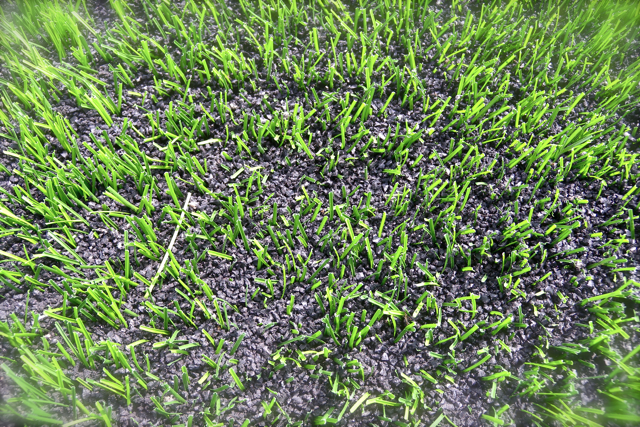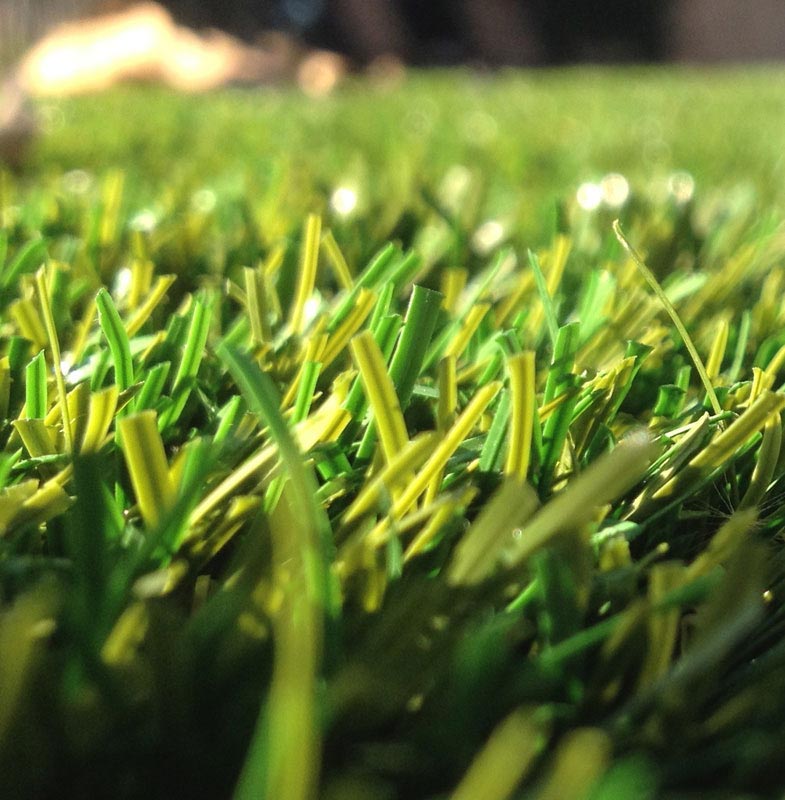Delve Into the Environmental Conveniences of Opting for Artificial Grass Solutions
The adoption of synthetic grass options offers a compelling opportunity to resolve pushing environmental challenges. By significantly decreasing water use and decreasing the application of dangerous chemicals, these choices not just promote sustainable landscape design but likewise protect regional communities. The lower carbon footprint connected with lowered upkeep activities adds to an extra sustainable technique to land management. Nonetheless, the ramifications of these advantages expand past mere preservation efforts, increasing questions about their long-term influence on environment preservation and overall eco-friendly balance. Checking out these dimensions exposes an intricate interaction worth taking into consideration.
Water Conservation Benefits
Among one of the most substantial benefits of man-made lawn is its ability to conserve water. Traditional turf yards need substantial watering, particularly in locations vulnerable to dry spell or water restrictions. On the other hand, fabricated lawn does not need watering, significantly reducing the general need for water sources. This feature is particularly valuable in deserts where water scarcity is a pressing concern.
By getting rid of the demand for regular watering, synthetic grass contributes to sustainable landscape methods and aids minimize the environmental effect of excessive water usage. Additionally, the conservation of water prolongs to the reduction of overflow, which can cause dirt disintegration and river contamination.
Additionally, the installment of synthetic grass allows property owners and municipalities to assign water sources more efficiently, concentrating on essential usages such as drinking water and agriculture. The shift in the direction of synthetic grass not only promotes accountable water usage however likewise aligns with wider environmental objectives targeted at protecting natural deposits.
As neighborhoods increasingly focus on sustainability, the water preservation benefits of man-made lawn provide a compelling instance for its fostering in business and household landscaping projects.
Reduced Chemical Usage
The transition to synthetic grass considerably decreases the dependence on chemical therapies generally made use of in natural yard upkeep. Conventional turf monitoring commonly includes the application of herbicides, fertilizers, and chemicals to promote development and control parasites. These chemicals can present risks to human wellness, regional wildlife, and the setting, adding to dirt and water contamination.
In comparison, artificial turf removes the demand for these harmful materials. By reducing the launch of artificial substances into the ecosystem, fabricated grass advertises healthier dirt and water systems.
Furthermore, the absence of chemical runoff connected with artificial turf setups aids safeguard local waterways from pollution, supporting marine life and preserving biodiversity. Phoenix turf companies. As neighborhoods significantly focus on lasting practices, choosing artificial turf provides a viable remedy that lines up with environmental preservation goals. With this shift, homeowner can take pleasure in lavish green rooms without compromising eco-friendly health, leading the method for a much more sustainable future
Lower Carbon Footprint

Furthermore, the installment of artificial lawn can lead to significant water preservation. All-natural lawns require considerable quantities of water for irrigation, which not just includes to the carbon impact connected with water removal and therapy yet additionally strains regional water sources. On the other hand, synthetic grass requires very little maintenance, calling for no watering, therefore significantly decreasing water use and its connected energy prices.
Furthermore, the longevity of synthetic grass contributes to its lower carbon impact. With a life-span of approximately 15 years or more, the demand for constant replacements is lessened, leading to less waste and reduced power intake in production and throwing away typical turf options. On the whole, synthetic grass provides a Related Site lasting choice for eco mindful landscape design.
Environment Preservation
Habitat conservation is a crucial consideration in the debate over landscaping selections, especially when contrasting artificial grass to all-natural grass. Natural lawn lawns commonly call for considerable maintenance, including using herbicides, fertilizers, and chemicals, which can negatively influence local ecosystems. These chemicals can seep right into the soil and rivers, damaging native plants and animals and disrupting neighborhood environments.
In comparison, man-made lawn presents an opportunity to decrease the eco-friendly impact of landscape design. By choosing synthetic turf, property owners can decrease the disturbance of all-natural habitats linked with conventional yard treatment practices. Artificial grass gets rid of the need for unsafe chemicals, thereby safeguarding close-by why not try here wildlife and maintaining the integrity of surrounding ecosystems. The setup of man-made grass can lead to the conversion of previous yard areas right into more biodiverse landscapes, such as pollinator gardens or indigenous plant locations, which can sustain local wildlife.
Eventually, the shift to synthetic grass not just saves water and lowers maintenance efforts yet additionally cultivates an extra unified connection in between human activities and the natural setting, promoting environment preservation while doing so.
Long-Term Sustainability
Long-lasting sustainability is an important consider examining the advantages of synthetic lawn over typical yard yards. One of the most considerable advantages of fabricated turf is its durability; it can last approximately 15-20 years with marginal maintenance, whereas natural yard needs regular reseeding and replacement. This long life reduces the requirement for continuous resources, such as water, plant foods, and chemicals, which are crucial for keeping a healthy turf yard.
Additionally, synthetic grass adds to a reduction in carbon emissions related to lawn treatment devices. Typical yards typically call for gas-powered mowers, leaners, and blowers, all of which contribute to air pollution. Artificial turf companies phoenix. In contrast, synthetic grass gets rid of the need for such tools, promoting a cleaner environment
In addition, the manufacturing of synthetic grass progressively uses recycled products, improving its sustainability account. As makers take on green methods, the ecological footprint of synthetic grass proceeds to reduce.

Verdict
The adoption of synthetic grass remedies offers considerable ecological advantages, including significant water preservation, reduced dependence on damaging chemicals, and a lower carbon footprint. Artificial lawn aids in protecting all-natural habitats by check this site out reducing land disruption and advertising lasting sustainability through the usage of long lasting products. Collectively, these factors underscore the potential of artificial turf to contribute positively to environmental wellness and provide a sensible alternative to typical landscaping techniques in a progressively resource-conscious world.
In comparison, artificial lawn does not need watering, significantly lowering the general demand for water resources. By decreasing the launch of artificial substances into the community, artificial lawn promotes healthier soil and water systems.
Additionally, the setup of artificial lawn can result in significant water preservation. In comparison, man-made turf needs marginal maintenance, requiring no watering, consequently dramatically reducing water use and its associated energy prices.
